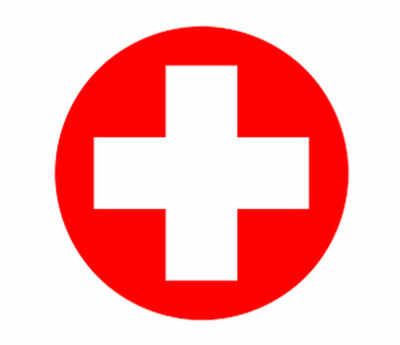Covid-19 and Seizure disorder: what you need to know By Dr Gautam Arora Neurologist
Industry: Healthcare
Epilepsy and Covid-19: By Dr Gautam Arora Neurologist
Monroe, NJ (PRUnderground) February 24th, 2022
IF you or someone you care for has epilepsy, you might be wondering about specific risks associated with coronavirus infection and the COVID-19 vaccines.
COVID-19 and People with Epilepsy
Are people with epilepsy more likely to get COVID-19 or have complications?
It is know that coronaviruses, such as SARS-CoV-2, attack the nervous system. A retrospective 2020 study notes that 36.4% of the participants with COVID-19 had neurological manifestations, including seizures.Moreover there is a risk, albeit low, of seizures getting worse for most people with epilepsy if they acquire a SARS-CoV-2 infection. This is possible because illness, particularly with a fever, can stress the body and increase the risk and frequency of seizures.COVID-19 can also cause symptoms, including fever, lack of sleep, and tiredness, that may trigger seizures and make them longer and more intense. However, a 2020 reviewTrusted Source suggests that the risk of having COVID-19-related seizures is low unless a person is critically ill or in the terminal stage of illness.“No, having epilepsy alone does not increase your risk of coronavirus infection, severity, long-term COVID-19 or complications,” However, seizure disorders can coexist with other health problems. A weakened immune system or other conditions such as lung disease, obesity, advanced age, diabetes and heart disease can put people at increased risk for coronavirus infection and more severe cases of COVID-19. Some people with these risk factors experience seizures as well.
A 2019 study found that of critically ill patients have seizures. These individuals can experience severe symptoms such as low oxygen levels in the blood, shock, hypoglycemia, hyperglycemia, metabolic and electrolyte imbalance, and multiorgan damage, which can cause seizures in people with or without epilepsy.A 2021 study also indicates that inflammation of the brain or the membranes that surround it — known as encephalitis and meningitis, respectively — is the most common neurological complication of COVID-19. The second most common symptom of this complication is seizures.
Can epileptic seizures worsen during or after coronavirus infection?
“Although considered a rare event, high fever and infections can lower the seizure threshold, causing an increase in the seizure frequency,” “This usually occurs in a small subset of patients.”
Is the COVID-19 vaccine safe for people with epilepsy?
Yes, based on information currently available, the COVID-19 vaccine is safe for people with epilepsy, . Although the data are limited, so far there is no evidence that patients with epilepsy are at a higher risk of adverse complications after getting the COVID-19 vaccine.Seizure Medications and COVID-19Do seizure medicines increase the risk of getting COVID-19?No, seizure medicines do not increase the risk of getting COVID-19.there is no evidence that taking anti-seizure drugs increases your risk for becoming infected with the coronavirus.Can COVID-19 treatments interfere with anti-seizure medications?In general, no, COVID-19 treatments do not interact with anti-seizure medications, but it may depend on what the patient is taking. Husari says some of the older generation anti-seizure drugs (such as phenytoin, valproate, carbamazepine or phenobarbital) have a higher risk of potential drug-to-drug interactions with some of the medications used in patients with moderate to severe cases of COVID-19.Patients with epilepsy who are being treated for COVID-19 should make sure their doctors know all the medications they are taking so they can avoid possibly harmful interactions.
Like many other vaccines, the COVID-19 vaccine can cause some side effects, including:
- Soreness around the area you were injected
- Headaches
- Being sick
- Feeling tired
- Having a high temperature for a few hours
This last side effect could be a concern for people whose seizures are affected by high temperatures. If you have noticed that you get seizures when you have a fever, it is worth speaking with your epilepsy specialist to prepare for this. You might also want to work on a seizure management plan.One Study suggests taking drugs such as acetaminophen to help reduce your temperature during the 48 hours after your vaccination. This may reduce the chances of having a breakthrough seizure.It is also worth checking if you are allergic to any of the ingredients in the vaccine. If you’ve ever had an allergic reaction to a drug or vaccine before, you should tell staff at the vaccination center.
Interaction between drugs for epilepsy and the COVID vaccine
If you take anti-epilepsy medication to control your seizures, you may be concerned about whether the vaccination could affect how well your anti-seizure drugs work. According to scientists there is no reason to believe that the vaccine will reduce the effectiveness of your anti-seizure drugs.
Conclusions: data suggest that vaccination against COVID-19 appears to be well tolerated in Patients, supporting the recommendation of vaccination to PWE.
About NPMC Neurology and Pain Management Clinic
NPMC Neurology and Pain Management Clinic
E164/1 Kamla Nagar Delhi
info@neuroandpain.clinic
www.neuroandpain.clinic
+918810340685







